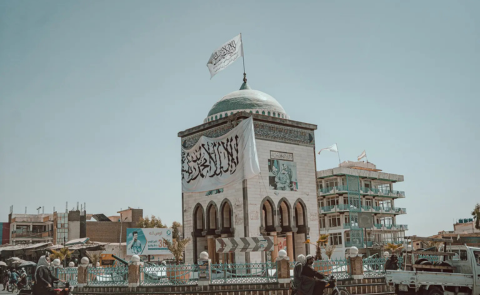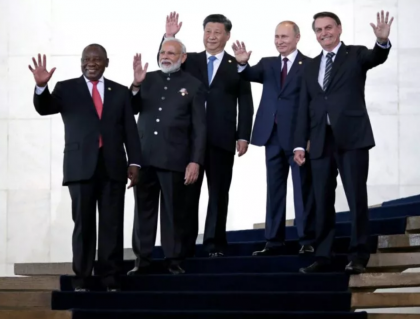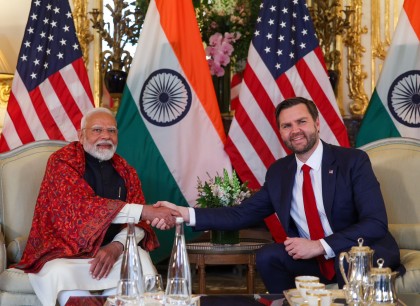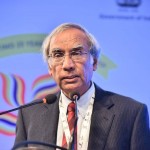 Courtesy: Agence France-Presse
Courtesy: Agence France-Presse
The on-going India-Pakistan tensions have obscured the grave issues Pakistan is facing on its western frontier with Afghanistan. The resurgence of Pashtun nationalism, the long-running Baloch insurgency and the growing resentment over Punjabi dominance is challenging Pakistan’s identity and ideology as protector of Islam. The Taliban under the Emir in Kandahar holds far greater moral authority than any general in Rawalpindi.
 Courtesy: Agence France-Presse
Courtesy: Agence France-Presse
India-China relations, undergoing a thaw since October 2024, have been slow to mend. In this scenario it is worth examining what assistance China can give Pakistan in case of military action by India, post Pahalgam. The state of play on the India-China border will also have a major implication for this.
 Courtesy: AFP
Courtesy: AFP
The victory of Mark Carney and the Liberals in the Canadian elections is a turnaround from the party's diminished position just four months ago. The former banker's campaign ran on a strong, independent Canada able to stand up to the new U.S. administration’s tariff provocations. Now come the challenges. The Carney government has much work to do in rebuilding ties abroad and bridging Canada's internal divisions.
 Courtesy: Khyber News
Courtesy: Khyber News
The horrific attack on April 22 on tourists in Kashmir has exposed its stark and violent reality. Kashmir remains tumultuous even after the abrogation of Article 370 in 2019. Before confronting Pakistan, India must first address its internal challenges and deliver on its election promises to achieve enduring progress.
 Courtesy: PTI
Courtesy: PTI
Amid polycrises, from pandemics to wars and trade wars, the global order is in flux, with the contours of the new order still unclear. As the world marks the 70th anniversary of the historic Bandung Conference, this article analyses how its Ten Principles still resonate in today's fractured geopolitical landscape and offer a roadmap for equity, inclusivity, and balance.
 Courtesy: Reuters
Courtesy: Reuters
Kurdish independence has been an unresolved problem in West Asia for over a century, but a solution may be in sight. Two recent developments highlight this: the unilateral ceasefire declaration by the Kurdistan Workers Party and the signing of a Memorandum of Understanding between Syria’s transitional government and the Syrian Democratic Forces. These may be key to resolving the Kurdish issue.
 Courtesy: East Asia Forum
Courtesy: East Asia Forum
The traditional power structures of ‘unipolarity’ or ‘bipolarity’ prevalent over the past 80 years are no longer appropriate to describe the current global order, with more countries increasingly supporting the evolving multipolar world. With the old ‘rules-based’ order becoming less relevant, emerging powers like India have an opportunity to draft more equitable rules to match their multipolar intentions.
 Courtesy: Körber-Stiftung
Courtesy: Körber-Stiftung
The world is undergoing profound transformations that are not being driven only by the United States, China or Russia. Small and medium-sized States are carving out a legitimate place for themselves in the emerging new order. This second edition of our annual Emerging Middle Powers Report is a reminder that the signs of the times are showing a new momentum for middle powers.
 Courtesy: Narendra Modi on X
Courtesy: Narendra Modi on X
U.S. President Donald Trump is determined that India lower tariffs on American imports. He is sending his top representatives to communicate with officials in New Delhi before his own arrival in the Indian capital, aiming to finalize the proposed bilateral trade agreement.
 Courtesy: India Today
Courtesy: India Today
India’s new Agnipath scheme was launched in 2022, which offered young Indians a chance to qualify for four-year military service with 25% possibly being retained for a full service job. How have the ‘Agniveers’ fared now? In this time of multiple wars, how does the Agnipath scheme compare to ones offered globally?












